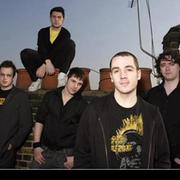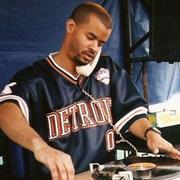South Park Mexican
| 基本信息 | |||
|---|---|---|---|
| 姓名 | South Park Mexican | 别名 | 暂无 |
| 国籍 | 出生地 | ||
| 语言 | 性别 | 男 | |
| 生日 | 星座 | ||
| 身高 | 体重 | ||
by Jason Birchmeier
Originating in the Southern rap mecca Houston, South Park Mexican (SPM) slowly built up his own personally run record label, Dope House Records, for years before eventually signing a distribution deal with Universal Records. With the promising deal in place, SPM stood on the verge of extending his reach outside of the South and becoming one of the first Mexican-American rappers to attain national success. He unfortunately never fulfilled his promise. First, his releases for Universal failed to top the charts during the early 2000s, and then he went to prison in June 2002 after a Houston jury convicted him of sexually assaulting a nine-year-old girl.
Before he became South Park Mexican, Carlos Coy spent years in the dope game. Born in Houstons predominantly Hispanic South Park neighborhood, Coy scored his first felony at the tender age of ten and continued on a path of crime, eventually getting involved with drugs by his teens. After several years of hustling on the streets, he finally got out of the dope game after a deal went bad. Around the same time, his daughter was born, causing him to re-examine his priorities. It was at this time in 1994 that Coy turned to a new hustle — the rap game. Even though he had never really rapped much before in his life, he started his own record label and began honing his rhymes. At first he did what he could, hustling tapes for five dollars a piece in his neighborhood, and by the late 90s, he was putting out his own CDs on his label. His two 1998 albums — Hustle Town and Power Moves — established him in the South as a up-and-coming rapper and his rigorous touring throughout Texas won even more fans.
Coy won a deal with Universal following releases in 1999 and 2000 — 3rd Wish to Rock the World and The Purity Album, respectively — and had his Time Is Money album on the streets by the end of 2000. The following year, he returned with his second album for Universal, Never Change. Though Universal heavily marketed the album, like it had done with Time Is Money, the results were similar — no crossover. Big marketing budget or not, Coys hardcore rapping proved to be too harsh for the masses. His 2002 release, Reveille Park, a collection of freestyles, proved no different, especially since Universal chose not to release it. Finally, Coy met his unfortunate fate on May 18th, when a Houston jury convicted him for aggravated sexual assault of a child; in June the same jury sentenced him to 45 years in prison. Coy testified that he did not assault the nine-year-old girl, who had spent the night at his house with his daughter. However, Coy did admit to having sex in 1993 with a 13-year-old girl who had a son, which didnt help his case with the jury.
Originating in the Southern rap mecca Houston, South Park Mexican (SPM) slowly built up his own personally run record label, Dope House Records, for years before eventually signing a distribution deal with Universal Records. With the promising deal in place, SPM stood on the verge of extending his reach outside of the South and becoming one of the first Mexican-American rappers to attain national success. He unfortunately never fulfilled his promise. First, his releases for Universal failed to top the charts during the early 2000s, and then he went to prison in June 2002 after a Houston jury convicted him of sexually assaulting a nine-year-old girl.
Before he became South Park Mexican, Carlos Coy spent years in the dope game. Born in Houstons predominantly Hispanic South Park neighborhood, Coy scored his first felony at the tender age of ten and continued on a path of crime, eventually getting involved with drugs by his teens. After several years of hustling on the streets, he finally got out of the dope game after a deal went bad. Around the same time, his daughter was born, causing him to re-examine his priorities. It was at this time in 1994 that Coy turned to a new hustle — the rap game. Even though he had never really rapped much before in his life, he started his own record label and began honing his rhymes. At first he did what he could, hustling tapes for five dollars a piece in his neighborhood, and by the late 90s, he was putting out his own CDs on his label. His two 1998 albums — Hustle Town and Power Moves — established him in the South as a up-and-coming rapper and his rigorous touring throughout Texas won even more fans.
Coy won a deal with Universal following releases in 1999 and 2000 — 3rd Wish to Rock the World and The Purity Album, respectively — and had his Time Is Money album on the streets by the end of 2000. The following year, he returned with his second album for Universal, Never Change. Though Universal heavily marketed the album, like it had done with Time Is Money, the results were similar — no crossover. Big marketing budget or not, Coys hardcore rapping proved to be too harsh for the masses. His 2002 release, Reveille Park, a collection of freestyles, proved no different, especially since Universal chose not to release it. Finally, Coy met his unfortunate fate on May 18th, when a Houston jury convicted him for aggravated sexual assault of a child; in June the same jury sentenced him to 45 years in prison. Coy testified that he did not assault the nine-year-old girl, who had spent the night at his house with his daughter. However, Coy did admit to having sex in 1993 with a 13-year-old girl who had a son, which didnt help his case with the jury.
 加载评论内容,请稍等......
加载评论内容,请稍等......













